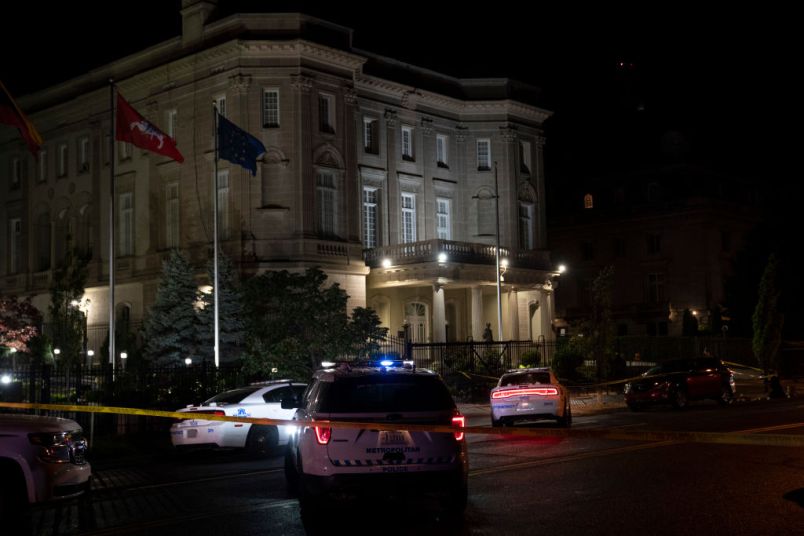Cuba’s deputy minister, Carlos Fernández de Cossío Domínguez, weighed in on the recent attack on his country’s embassy in Washington D.C. during a briefing with reporters on Wednesday.
“We don’t have any facts at the moment about the individual. It’s an ongoing investigation according to what’s been said by the U.S. government,” Dominguez said in response to a question from TPM. “We expect to be informed about the course of the investigation.”
Cuban officials have said an unidentified individual threw two Molotov cocktails at the embassy on Sunday night. Bruno Rodríguez Parrilla, Cuba’s foreign minister, has described the incident as a “terrorist attack.” No one was injured. Cuban officials turned over security footage to U.S. law enforcement showing a person lighting and throwing two incendiary devices at the front wall of the diplomatic mission shortly before 8 p.m.
The State Department has condemned Sunday’s Molotov cocktail attack as “unacceptable.”
The incident was the second attack on the embassy since it was reopened after more than half a century in 2015 when President Barack Obama resumed diplomatic relations between the two countries. In April 2020, a Cuban man who was living in this country was arrested and charged after he “fired approximately 32 rounds of an assault-style weapon” at the embassy. The building was occupied during the shooting, but no one was injured.

Cuba, which the State Department considers an authoritarian state, has a vocal exile community that has accused the country’s government of human rights abuses and repression. The U.S. has long been a haven for the Cuban opposition. Cuba has been under a U.S. embargo for more than 60 years following the country’s communist revolution. The Cuban government refers to the embargo as a blockade and has blamed it for worsening humanitarian conditions in the country.
While Obama made efforts to normalize relations with Cuba, President Trump stepped up sanctions. In early 2021, shortly before he left office, Trump designated Cuba as a state sponsor of terrorism, a characterization the island’s government vigorously disputes.
Following the attack in 2020, Cuba’s UN ambassador criticized the U.S. government for not calling the shooting terrorism and described it as the “direct result of the US Government´s aggressive and hateful policy and speeches against Cuba and the permanent incitement to violence by US politicians.”
In his remarks to reporters on Wednesday, the majority of which were off record, Dominguez expressed hope American authorities would be able to identify the perpetrator of the Molotov attack. At the same time, he also suggested the U.S. bore some responsibility for the tensions that may have led to the incident.
“We believe they should have — this is only an assumption — that they have the capacity to get to the bottom of this,” Dominguez said. “What we have done is to alert about the circumstances that made people — some people in the United States with terrorist tendencies — to believe they can act with impunity against the embassy of Cuba. But at the moment, we are awaiting the results of the investigation that is being carried out by U.S. law enforcement agencies.”



